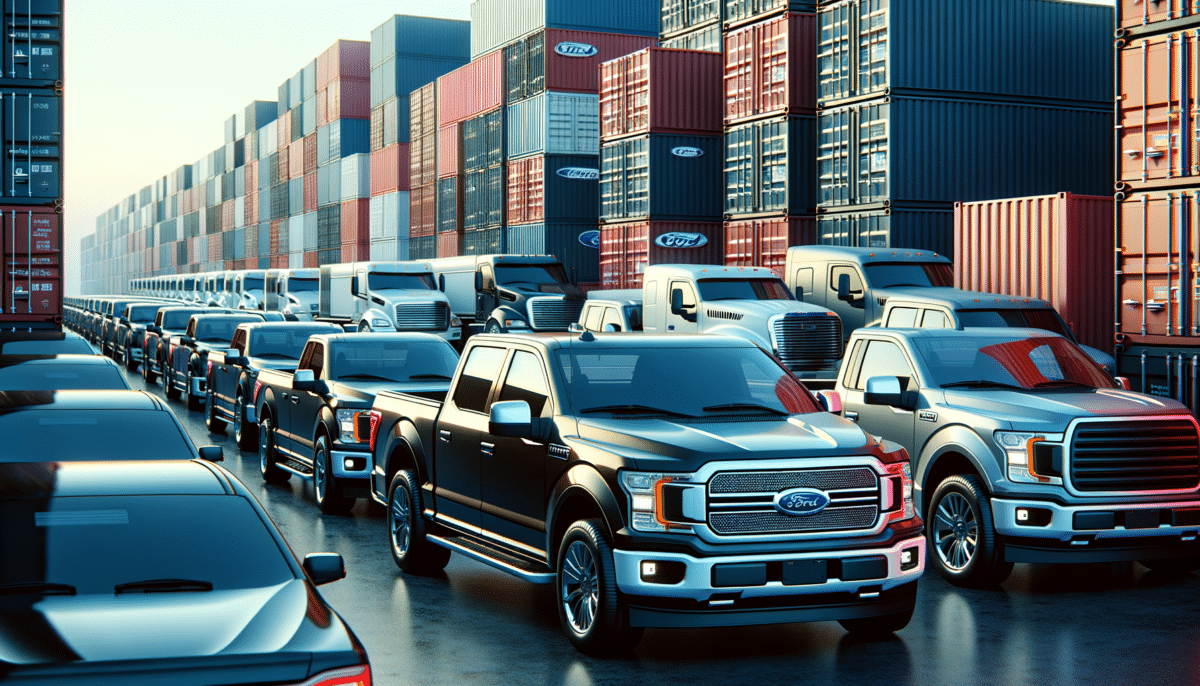The Rise of Pickup Trucks in the Automotive Market
Pickup trucks have evolved from rugged workhorses to versatile vehicles that cater to a broad audience. Originally designed for heavy-duty tasks, they have now become a symbol of power and reliability. This evolution is reflected in their growing market share. In recent years, pickup trucks have consistently ranked among the top-selling vehicles, driven by their appeal to both commercial and personal users.
Several factors contribute to this trend. The ability to tow and haul heavy loads makes them indispensable for industries like construction and agriculture. However, it’s not just about utility; modern pickups offer a blend of luxury and technology that attracts a diverse clientele. Features such as advanced infotainment systems, comfortable interiors, and cutting-edge safety technologies have broadened their appeal beyond traditional markets.
Moreover, the rise of lifestyle-oriented marketing strategies has positioned pickup trucks as vehicles that can handle both work and leisure. This dual-purpose appeal has been a significant factor in their popularity, making them a preferred choice for families and adventurers alike.
Key Features and Innovations in Modern Pickup Trucks
Today’s pickup trucks are a far cry from their utilitarian predecessors. They are equipped with a range of features that enhance performance, comfort, and safety. One of the most significant innovations is the development of advanced powertrains, including hybrid and electric options. These not only improve fuel efficiency but also meet stringent environmental standards.
Another notable feature is the integration of smart technology. Many models come with driver-assistance systems such as adaptive cruise control, lane-keeping assist, and automatic emergency braking. These technologies enhance safety and provide a more comfortable driving experience.
Interior design has also seen significant upgrades. High-quality materials, spacious cabins, and customizable configurations make pickups suitable for both work and family use. Additionally, the availability of off-road packages has made them popular among adventure enthusiasts, offering features like enhanced suspension systems and all-terrain tires.
Challenges Facing the Pickup Truck Market
Despite their popularity, the pickup truck market faces several challenges. One of the primary concerns is environmental impact. As governments worldwide implement stricter emissions regulations, manufacturers are under pressure to develop cleaner and more efficient models. This shift requires significant investment in research and development, which can affect pricing and accessibility.
Another challenge is the economic fluctuations that impact consumer purchasing power. Pickup trucks, especially high-end models, can be expensive, making them less accessible during economic downturns. Additionally, competition from other vehicle segments, such as SUVs and crossovers, poses a threat as these vehicles offer similar features with potentially better fuel economy.
Lastly, the global supply chain disruptions have affected the availability of components, leading to production delays and inventory shortages. These challenges require strategic planning and innovation to ensure the continued success of pickup trucks in the market.
Comparing Pickup Trucks with Other Vehicle Types
When comparing pickup trucks to other vehicle types, several factors come into play. Pickup trucks are renowned for their towing and payload capacities, making them ideal for tasks that require heavy lifting. In contrast, sedans and hatchbacks focus more on fuel efficiency and urban maneuverability.
SUVs and crossovers, on the other hand, offer a middle ground. They provide ample cargo space and off-road capabilities, similar to pickups, but often with better fuel economy and a more compact size. This makes them a popular choice for families who need versatility but do not require the full capabilities of a pickup truck.
However, for those who prioritize power and durability, pickups remain unmatched. Their robust construction and powerful engines make them suitable for both professional and recreational use. The choice ultimately depends on individual needs and preferences, with pickups being the go-to option for those who need a vehicle that can handle demanding tasks.
The Future of Pickup Trucks: Trends and Predictions
Looking ahead, the future of pickup trucks is poised for significant transformation. The shift towards electric vehicles is gaining momentum, with several manufacturers announcing plans to introduce electric pickups. This transition is driven by the need to reduce carbon emissions and meet evolving consumer expectations for sustainable transportation.
Another trend is the increasing focus on connectivity and automation. Future models are expected to feature more advanced driver-assistance systems and seamless integration with digital ecosystems. This will enhance not only safety but also the overall driving experience.
Moreover, as urbanization continues, there is a growing demand for more compact and efficient designs. Manufacturers are likely to explore smaller pickup models that retain the capabilities of traditional trucks while being more suited to urban environments.
The pickup truck market is dynamic and evolving, with manufacturers continually innovating to meet changing demands. As these trends unfold, pickup trucks are set to remain a significant player in the automotive industry, adapting to new technologies and consumer preferences.
